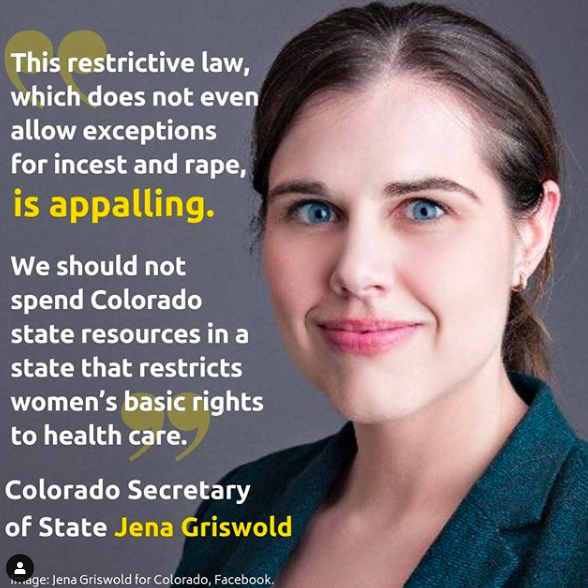Denver Ditches Menstrual Tax
Denver City Council voted yesterday to eliminate a tax on period and hygiene products. Tampons, menstrual pads, sanitary napkins, panty liners, menstrual sponges and cups are now exempt from Denver city taxes!
GEO Detention Center Conditions
Despite repeated quarantines and health concerns, the Aurora GEO detention center added 432 beds to its facility in January. Many of those being detained are asylum seekers. Policy experts and activists have continued to voice concerns over human rights violations in GEO.
Jude’s Law Passes
Jude’s Law has finally passed both the Colorado House and Senate! The bill now heads to Gov. Polis’ desk. The bill was first introduced in 2015 and has failed in every session until now. Jude’s Law allows Coloradans to update the gender marker on their birth certificate to M, F or X — without a surgery, a doctor’s note or court order.
Affordable Housing
Between 2011-2016, the average rent in Denver increased by 46%. And since 2015, the number of chronically homeless people in the metro Denver area has also steadily risen. But the city reports there’s still a shortage of at least 15,000 affordable housing units. So what kind of impact does access to affordable housing have on a person’s health? A lot, it turns out. Junk food is often cheaper than fresh foods, right? Affordable housing access frees up financial resources, so families and individuals can spend more on nutritious food. Research shows that children in homes receiving housing subsidies are more likely to have access to healthy food. And rent-burdened tenants are more likely to report skipping a prescription or health treatment due to cost. When rents go up, cost-burdened tenants have to relocate. But research shows that housing stability affects health, too. Children without stable housing are at risk of having developmental problems, being underweight and visiting the emergency room more frequently. Longer stays in one residence are associated with lower levels of behavioral issues like depression, stress and anxiety for both adolescents and seniors. Studies have also consistently shown that homeowners have better physical and mental health outcomes than renters. Environmental factors in low-income housing also have consequences on residents’ health. A 2011 government survey estimated that 37 million U.S. homes have lead-based paint and that low-income households had a higher prevalence of lead particles. Other hazards include mold, pests and bedbugs. Over 44,000 Denver households in 2015 were defined as “severely cost-burdened,” meaning they spent more than 50% of their income on housing costs. But when residents aren’t struggling to pay for good, quality housing, health improves. Housing interventions are associated with reduced levels of stress, depression and anxiety.
Net Neutrality Pass
A net neutrality bill has passed Colorado’s Senate. It would ban telecommunications companies from receiving state money for things like rural broadband deployment if they breach open internet principles.
CO Sec. of State on abortion bans
“This restrictive law, which does not even allow exceptions for incest and rape, is appalling. We should not spend Colorado state resources in a state that restricts women’s basic rights to health care.” – CO Sec. of State Jena Griswold on Alabama abortion bans







